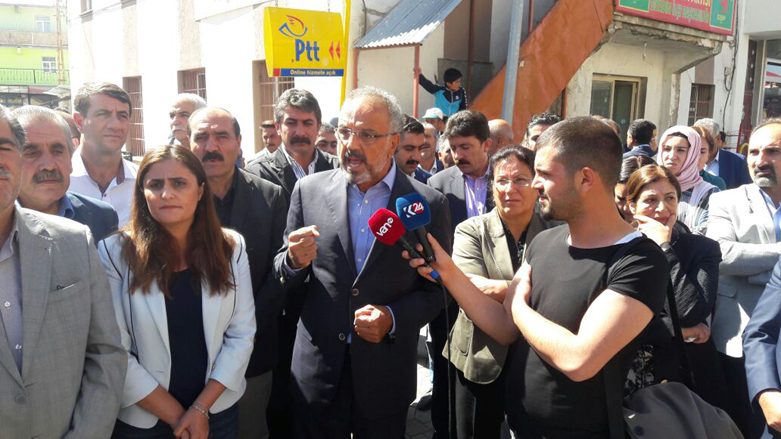Over 80 Kurdish municipalities seized in Turkey

ERBIL, Kurdistan Region (Kurdistan24) – The number of Kurdish-held municipalities seized by the Turkish government rose to 81 on Wednesday with the dismissal of the elected Co-mayor of the city of Agri Sirri Sakik.
Sakik’s removal from his post came two days after his attendance at a meeting in Ankara with the President of the Kurdistan Region Masoud Barzani who was on an official visit to Turkey.
Turkey’s Interior Ministry removed Sakik and appointed Agri Province’s Governor Musa Isin as a trustee to run municipal affairs of the city.
Armored vehicles surrounded Agri’s municipal building as police searched it and seized documents after the decision from Ankara came, said Kurdistan24’s Diyarbakir bureau.
Convicted in November 2016 by a court for “insulting the Turkish nation and disseminating terrorist propaganda,” Sakik took to Twitter to protest his removal from mayoralty.
Sakik likened the present-day state of affairs in Turkey to the year 1994 when police arrested him and seven other Kurdish lawmakers outside the Parliament, leading to their incarceration for 10 years.
The people of Agri elected Sakik and Mukaddes Kubilay as Co-mayors in the 2014 local elections.
Kubilay had already been in prison since December 2016 when Turkish police arrested her in an operation targeting members of the pro-Kurdish Democratic Regions Party (DBP).
There are 80 other DBP mayors detained in Turkish prisons, alongside at least 2,500 politicians from the same party.
Before an ongoing crackdown in the aftermath of the failed summer 2016 coup attempt against the rule of President Recep Tayyip Erdogan, the DBP controlled 106 municipalities at the township, city, and provincial levels across Kurdish-majority regions.
Erdogan and the government allege Kurdish-held municipalities had collaborated with the outlawed Kurdistan Workers’ Party (PKK).
Currently, only the municipality of the city of Igdir, north of Agri, remains in DBP’s hands, along with those of a score of smaller communities.
Editing by Karzan Sulaivany
